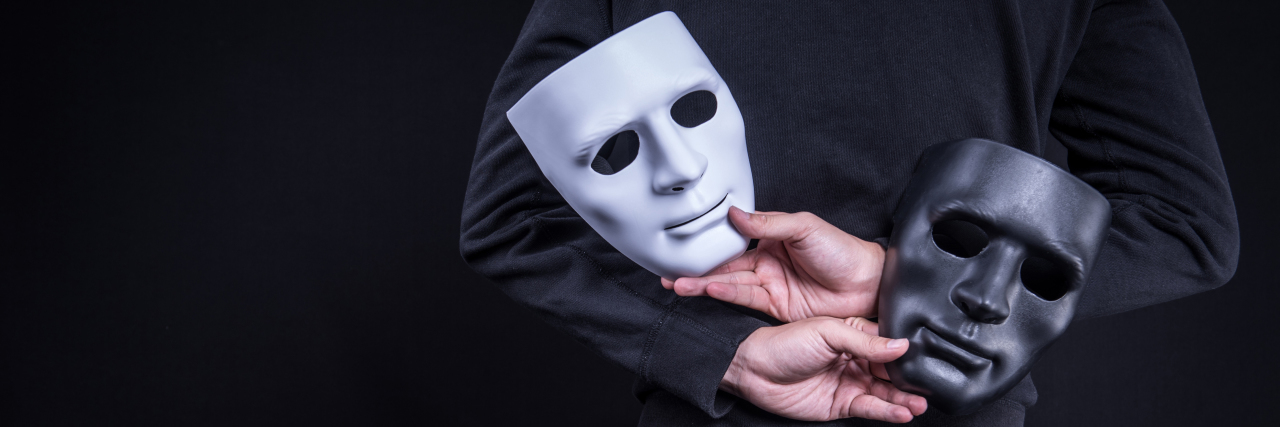For the past few months, I’ve been hearing about the practice of “masking” among autistics. Masking, also known as camouflaging, is the practice of artificially performing certain social behaviors in order to fit in with the neurotypical world. This can include mimicking social behaviors and repressing certain autistic behaviors, such as stimming.
It has been reported that many autistic people do this. For instance, one study showed that many autistic people mask in order to connect with others, find a job, or even gain a romantic partner. Many times, autistic people can be forced to mask by others. For example, a teacher or parent might force an autistic teen to act a certain way so they can blend in, even though the autistic characteristic the youth engages in might be calming to them. From the outside looking in, masking may sound efficient. However, masking can do much more harm than good.
Let’s put it this way, as an autistic person myself, masking seems to be more of a way for us to not truly be ourselves. Through masking, we are told to deny are characteristics that make each of us unique. For instance, there are autistics out there who have to hide certain interests because neurotypicals might see them as “weird.” Because of this, autistics may mimic how neurotypicals would talk, act and behave, trying to hide how they really feel so that they can act “normal.” But there is no such thing as “normal.”
There are also autistics who use masking when it comes to their difficulties. For example, an autistic person who struggles with giving eye contact would hide this issue by trying their hardest to look at another part of a person’s face so they are not seen as being rude. This might be seen as a way to ease into a social environment, but in reality, it could cause mental health issues, specifically anxiety.
Studies have shown that masking autistic characteristics and coping methods leads to anxiety. According to a 2017 British study, the autistic adults that were interviewed universally felt mentally, physically and emotionally drained from masking, as well as having a great sense of loneliness.
Anxiety caused by masking has been shown to be prevalent in autistic women, especially because they are frequently undiagnosed or misdiagnosed. This forces them to mask to fit in. Studies have shown that masking amongst autistic women has a price, with many reporting feeling overwhelmed when hiding a certain characteristic, such as stimming, because stimming helps them with regulating emotions. Autistic women already have difficulties with being underrepresented; masking just makes it worse.
Now I want to be very clear that every autistic is different when it comes to masking, but I have a sense of it due to my own experience. Growing up, I had a few tics to help me calm down when I felt anxious. One of them was known as flicking. I would find an object, like a pen cap, and flick in my hands. I would also rock back and forth when I felt anxious. These methods helped me, but those around me greatly discouraged them, especially flicking. People would tell me to stop and lecture me on how weird it was for me to do that. I was forced to mask myself from not doing it. Deep down I didn’t think it was weird, as it helped my anxiety. I had to secretly do this to keep my sanity. It wasn’t until later on in life when I found out this behavior was known as stimming and that it is common amongst fellow autistics. To this day, I continue to stim and have no shame about it.
For so long, autistics had to mask certain characteristics, causing much anxiety. We feel we have to mask a coping strategy because the neurotypical world feels it is “strange.” Why should we do this to please them? This is who we are and how we cope. I say enough is enough. We shouldn’t mask what helps us feel better.
The neurotypical world needs to listen to us and see how these certain characteristics help calm us down. Through this awareness, neurotypical people can see how what we are doing gives us peace of mind. In a world where anxiety is at an all-time high, why must we autistics mask how we cope?
Getty image by Zephyr18.

